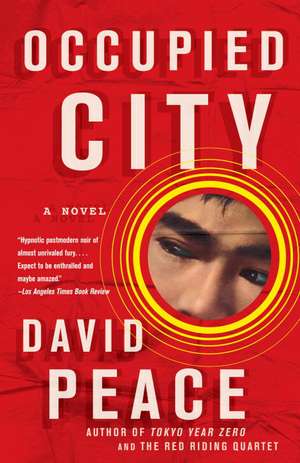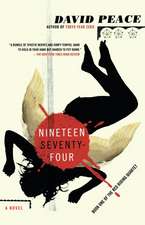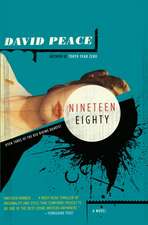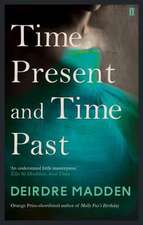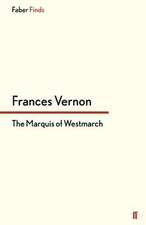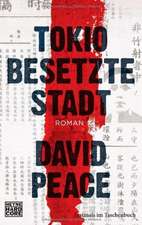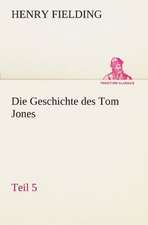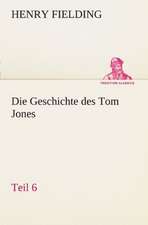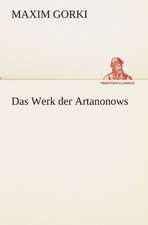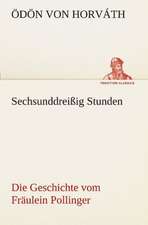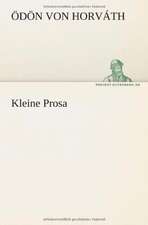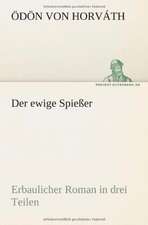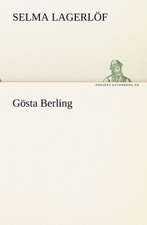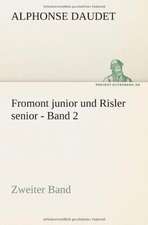Occupied City
Autor David Peaceen Limba Engleză Paperback – 31 ian 2011
Vezi toate premiile Carte premiată
Listen Up (2010)
| Toate formatele și edițiile | Preț | Express |
|---|---|---|
| Paperback (2) | 63.83 lei 3-5 săpt. | +10.26 lei 7-13 zile |
| FABER & FABER – 24 dec 2009 | 63.83 lei 3-5 săpt. | +10.26 lei 7-13 zile |
| Vintage Books USA – 31 ian 2011 | 110.88 lei 3-5 săpt. |
Preț: 110.88 lei
Nou
Puncte Express: 166
Preț estimativ în valută:
21.22€ • 23.12$ • 17.88£
21.22€ • 23.12$ • 17.88£
Carte disponibilă
Livrare economică 02-16 aprilie
Preluare comenzi: 021 569.72.76
Specificații
ISBN-13: 9780307276513
ISBN-10: 0307276511
Pagini: 275
Dimensiuni: 134 x 203 x 16 mm
Greutate: 0.21 kg
Editura: Vintage Books USA
ISBN-10: 0307276511
Pagini: 275
Dimensiuni: 134 x 203 x 16 mm
Greutate: 0.21 kg
Editura: Vintage Books USA
Notă biografică
David Peace is the author of The Red Riding Quartet, GB84, The Damned Utd, and Tokyo Year Zero. He was chosen as one of Granta’s 2003 Best Young British Novelists, and has received the James Tait Black Memorial Prize, the German Crime Fiction Award, and the French Grand Prix de Roman Noir for Best Foreign Novel. He lives in Yorkshire, England.
Extras
The First Candle–
The Testimony of the Victims Weeping
Because of you. The city is a coffin. In the snow. In the back of a truck. Parked outside the bank. In the sleet. Under the heavy damp tarpaulin. Driven through the streets. In the rain. To the hospital. To the morgue. In the sleet. To the mortuary. To the temple. In the snow. To the crematorium. To the earth and to the sky –
In our twelve cheap wooden coffins –
In these twelve cheap wooden coffins, we lie. But we do not lie still. In these twelve cheap wooden coffins, we are struggling. Not in the dark, not in the light; in the grey, we are struggling; for here is only grey, here we are only struggling –
In this grey place,
that is no place,
we are struggling all the time, always and already –
In this place, of no place, between two places. The places we once were, the places we will be –
The deathly living,
the living death –
Between these two places, between these two cities:
Between the Occupied City and the Dead City, here we dwell, between the Perplexed City and the Posthumous City –
Here we dwell, in the earth, with the worms,
in the sky, with the flies, we who are no longer in the houses of being. Beyond loss, flocks of birds fall from the sky and shower us with their bloody feathers and severed wings. But we still hear you. We who are now in the houses of non-being. Beyond loss, schools of
fish leap from the sea and splatter us with their bloody guts and severed heads. We still see you. We want to breathe again, but we can never breathe again. Beyond loss, herds of cattle run from the fields and trample us with their bloody carcasses and severed limbs. We listen to you. We want to return again, but we can never return again. Beyond loss. We watch you still. Through our veils–
The veils which no longer hang before our eyes, these veils which now hang behind our eyes, their threads spun by our tears, their webs woven by our deaths, these veils which replaced our names, which replaced our lives –
Through these veils,
still we see –
Still we watch, we watch you . . .
Our mouths always open, our mouths already open. But we no longer talk, we can no longer talk, here we can only mouth, mouth:
Do we matter to you? Did we ever matter?
Our mouths always screams,
already screams, screams
that mouth:
Your apathy is our disease; your apathy, a plague . . .
We dwell beyond sorrow. You close your mouths. We dwell beyond pain. You close your eyes. Beyond grief, beyond despair. You
close your ears, for you do not hear us, for you do not listen to us . . .
And we are tired, we are so tired, so very tired –
But still we dwell, between these two places –
Beyond dereliction, we lie. Drunk, you harangue us. Beyond oblivion, we wait. Sober, you ignore us. Forgotten and untended,
buried or burnt, haunted and restless, under the earth and above the sky, without dreams and without sleep. You are blind to our suffering. We are so tired, so very tired. You are deaf to our supplications. We weep without tears, we scream without sound,
yet still we wait, and still
we watch –
Between the Occupied City and the Dead City, between the Perplexed City and the Posthumous City we wait, we watch and we
struggle. Here in this grey place, here where we are waiting,
watching and struggling:
Cursed be you who cast us into this place! Cursed be you who keep us here! Fickle you are, so very fickle–
Fickle are you, fickle the living . . .
Forgotten are we, forgotten and denied –
Lives forgotten and deaths denied –
For you deny us our deaths . . .
Deny us and trap us . . .
In the Perplexed City, the Posthumous City, beyond the Occupied City, before the Dead City, here we are trapped, trapped in the greyness, trapped in this city. In this city that is no city,
this place that is no place –
Here we shuffle, we shuffle around, around in circles, with our boxes. Did you hear our footsteps in your heart? Our own ashes,
around our necks, our own bones, in these boxes. Did you feel our fingertips within your flesh? We raise our shoulders, we raise our
faces, we raise our eyes. Have you come to lead us back, back towards the light? Back towards the light, we begin to shuffle. Back
to the Occupied City? In the Occupied City, we shuffle around, around these twelve candles, we gather around, around and around –
Back in the Occupied City, here we are the victims again –
Here, never the witnesses; always, already the victims –
So we are weeping. Always, already the weeping –
Here, we who were once the living –
Now weeping all the time, here –
Here tonight, weeping –
In the Occupied City, where the weeping seek the living. But the living are not here, not here tonight before these candles –
Here tonight, there are only the weeping –
Here tonight, only us:
And so again tonight we are Takeuchi Sutejiro, Watanabe Yoshiyasu, Nishimura Hidehiko, Shirai Shoichi, Akiyama Miyako, Uchida Hideko, Sawada Yoshio, Kato Teruko, Takizawa Tatsuo, Takizawa Ryu, Takizawa Takako and Takizawa Yoshihiro –
But we are still weeping. Always,
already the weeping,
always, already the weeping again in the Occupied City:
In the Occupied City it is 26January 1948 again –
Here it is always, already 26 January 1948 –
This date always, already our wound –
Our wound which will never heal –
Here, here where it is always, already that date, that time; always, already, the last time:
For the last time. In the morning, we wake in our beds. In our beds that are no longer our beds. For the last time. In our homes, we dress. In our homes that are no longer our homes, our clothes that are no longer our clothes. For the last time. We eat white rice. Now we eat only the black rice, the black rice that empties our stomachs. For the last time. We drink clear water. Here we drink only the dark water, the dark water that empties our mouths. For the last time. In our genkans, we say goodbye to our mothers and our fathers, our sisters and our brothers, our wives and our sons, our husbands and our daughters. Our mothers and our fathers, our sisters and our brothers, our wives and our sons, our husbands and our daughters who are no longer our mothers and our fathers, no longer our sisters and our brothers, no longer our wives and our sons, no longer our husbands and our daughters. For the last time. In the snow, we leave for work. For our work that is no longer our work. For the last time. Among the crowds, we catch our trains and our buses. Our trains and our buses that are no longer our trains and our buses . . .
For the last time. Through the Occupied City, we shuffle –
From the Shiinamachi Station, we shuffle. In the sleet. For the last time. Up the road, we shuffle. Through the mud. For the last time. To the Teikoku Bank. The Teikoku Bank that is no longer a bank . . .
For the last time. We slide open the door. The door that is no longer a door. For the last time. We take off our shoes. Where are our shoes now? For the last time. We put on our slippers. Where are our slippers? For the last time. We sit at our desks. Our desks that
are no longer, no longer our desks . . .
For the last time –
Among the papers and among the ledgers, we wait for the bank to open. For the last time, on this last day, 26 January 1948–
We watch the hands of the clock reach half past nine. For the last time. The bank opens and the day begins. For the last time. We serve the customers. For the last time. We write in ledgers.
For the last time –
In the glow of the lights, in the warmth of the heaters, we hear the snow turn to sleet, the sleet turn to rain, as it falls on the roof of the bank. And we wonder if today the bank will close early. We wonder if today we will be able to leave early, to go back to our homes, back to our families. Because of the weather,
because of the snow –
But the snow has turned to sleet, the sleet has turned to rain, and so the bank will not close early today and so we will not be able to leave early today, we will not be able to go back to our homes,
back to our families –
So we sit at our desks in the bank, in the glow of the lights, in the warmth of the heaters, and we watch the hands of the clock and we glance at the face of our manager, our manager sat at his desk at the back; we know Mr Ushiyama, our manager, is not so well. We can see it in his face. We can hear it in his voice. We know he has severe stomach pains. We know he has had these pains for almost a week. We all know what this could be; we know it could be dysentery, we know it could be typhoid. In the Occupied City,
we all know what this could mean –
In the Occupied City, we know
this could mean death, death –
But he will survive this,
he will live through
this . . .
For the last time. We watch the hands of the clock reach two o’clock and we see Mr Ushiyama rise from his desk at the back, his face is white and he holds his stomach. For the last time. We watch Mr Ushiyama bow and we listen to Mr Ushiyama apologize to us all. For the last time. We watch as Mr Ushiyama leaves early –
And we all know what this could mean –
We know this could mean death –
But he will survive, he will live. Back in his home that is still his home, back with his family that is still his family . . .
But we do not leave early today. We do not go back to our homes, back to our families. We sit at our desks, in the glow of the lights, in the warmth of the heaters, and we go back to our customers and back to our ledgers. And we listen to the sound of the rain –
And we watch the hands of the clock –
We watch the hands of the clock reach three o’clock and we watch as the bank closes its doors for the day. Among the stacks of receipts, we collate the day’s transactions. For the last time. Among the piles of cash, we tally the day’s money. For the last time. And then we hear the tap-tap upon the side door. For the last time –
We look up at the hands of the clock –
For the last time:
It is now twenty past three on Monday, 26 January 1948 –
Twenty past three, in the Occupied City –
The knock now upon the side door –
Twenty past three and he is here –
Our killer is here.
The Testimony of the Victims Weeping
Because of you. The city is a coffin. In the snow. In the back of a truck. Parked outside the bank. In the sleet. Under the heavy damp tarpaulin. Driven through the streets. In the rain. To the hospital. To the morgue. In the sleet. To the mortuary. To the temple. In the snow. To the crematorium. To the earth and to the sky –
In our twelve cheap wooden coffins –
In these twelve cheap wooden coffins, we lie. But we do not lie still. In these twelve cheap wooden coffins, we are struggling. Not in the dark, not in the light; in the grey, we are struggling; for here is only grey, here we are only struggling –
In this grey place,
that is no place,
we are struggling all the time, always and already –
In this place, of no place, between two places. The places we once were, the places we will be –
The deathly living,
the living death –
Between these two places, between these two cities:
Between the Occupied City and the Dead City, here we dwell, between the Perplexed City and the Posthumous City –
Here we dwell, in the earth, with the worms,
in the sky, with the flies, we who are no longer in the houses of being. Beyond loss, flocks of birds fall from the sky and shower us with their bloody feathers and severed wings. But we still hear you. We who are now in the houses of non-being. Beyond loss, schools of
fish leap from the sea and splatter us with their bloody guts and severed heads. We still see you. We want to breathe again, but we can never breathe again. Beyond loss, herds of cattle run from the fields and trample us with their bloody carcasses and severed limbs. We listen to you. We want to return again, but we can never return again. Beyond loss. We watch you still. Through our veils–
The veils which no longer hang before our eyes, these veils which now hang behind our eyes, their threads spun by our tears, their webs woven by our deaths, these veils which replaced our names, which replaced our lives –
Through these veils,
still we see –
Still we watch, we watch you . . .
Our mouths always open, our mouths already open. But we no longer talk, we can no longer talk, here we can only mouth, mouth:
Do we matter to you? Did we ever matter?
Our mouths always screams,
already screams, screams
that mouth:
Your apathy is our disease; your apathy, a plague . . .
We dwell beyond sorrow. You close your mouths. We dwell beyond pain. You close your eyes. Beyond grief, beyond despair. You
close your ears, for you do not hear us, for you do not listen to us . . .
And we are tired, we are so tired, so very tired –
But still we dwell, between these two places –
Beyond dereliction, we lie. Drunk, you harangue us. Beyond oblivion, we wait. Sober, you ignore us. Forgotten and untended,
buried or burnt, haunted and restless, under the earth and above the sky, without dreams and without sleep. You are blind to our suffering. We are so tired, so very tired. You are deaf to our supplications. We weep without tears, we scream without sound,
yet still we wait, and still
we watch –
Between the Occupied City and the Dead City, between the Perplexed City and the Posthumous City we wait, we watch and we
struggle. Here in this grey place, here where we are waiting,
watching and struggling:
Cursed be you who cast us into this place! Cursed be you who keep us here! Fickle you are, so very fickle–
Fickle are you, fickle the living . . .
Forgotten are we, forgotten and denied –
Lives forgotten and deaths denied –
For you deny us our deaths . . .
Deny us and trap us . . .
In the Perplexed City, the Posthumous City, beyond the Occupied City, before the Dead City, here we are trapped, trapped in the greyness, trapped in this city. In this city that is no city,
this place that is no place –
Here we shuffle, we shuffle around, around in circles, with our boxes. Did you hear our footsteps in your heart? Our own ashes,
around our necks, our own bones, in these boxes. Did you feel our fingertips within your flesh? We raise our shoulders, we raise our
faces, we raise our eyes. Have you come to lead us back, back towards the light? Back towards the light, we begin to shuffle. Back
to the Occupied City? In the Occupied City, we shuffle around, around these twelve candles, we gather around, around and around –
Back in the Occupied City, here we are the victims again –
Here, never the witnesses; always, already the victims –
So we are weeping. Always, already the weeping –
Here, we who were once the living –
Now weeping all the time, here –
Here tonight, weeping –
In the Occupied City, where the weeping seek the living. But the living are not here, not here tonight before these candles –
Here tonight, there are only the weeping –
Here tonight, only us:
And so again tonight we are Takeuchi Sutejiro, Watanabe Yoshiyasu, Nishimura Hidehiko, Shirai Shoichi, Akiyama Miyako, Uchida Hideko, Sawada Yoshio, Kato Teruko, Takizawa Tatsuo, Takizawa Ryu, Takizawa Takako and Takizawa Yoshihiro –
But we are still weeping. Always,
already the weeping,
always, already the weeping again in the Occupied City:
In the Occupied City it is 26January 1948 again –
Here it is always, already 26 January 1948 –
This date always, already our wound –
Our wound which will never heal –
Here, here where it is always, already that date, that time; always, already, the last time:
For the last time. In the morning, we wake in our beds. In our beds that are no longer our beds. For the last time. In our homes, we dress. In our homes that are no longer our homes, our clothes that are no longer our clothes. For the last time. We eat white rice. Now we eat only the black rice, the black rice that empties our stomachs. For the last time. We drink clear water. Here we drink only the dark water, the dark water that empties our mouths. For the last time. In our genkans, we say goodbye to our mothers and our fathers, our sisters and our brothers, our wives and our sons, our husbands and our daughters. Our mothers and our fathers, our sisters and our brothers, our wives and our sons, our husbands and our daughters who are no longer our mothers and our fathers, no longer our sisters and our brothers, no longer our wives and our sons, no longer our husbands and our daughters. For the last time. In the snow, we leave for work. For our work that is no longer our work. For the last time. Among the crowds, we catch our trains and our buses. Our trains and our buses that are no longer our trains and our buses . . .
For the last time. Through the Occupied City, we shuffle –
From the Shiinamachi Station, we shuffle. In the sleet. For the last time. Up the road, we shuffle. Through the mud. For the last time. To the Teikoku Bank. The Teikoku Bank that is no longer a bank . . .
For the last time. We slide open the door. The door that is no longer a door. For the last time. We take off our shoes. Where are our shoes now? For the last time. We put on our slippers. Where are our slippers? For the last time. We sit at our desks. Our desks that
are no longer, no longer our desks . . .
For the last time –
Among the papers and among the ledgers, we wait for the bank to open. For the last time, on this last day, 26 January 1948–
We watch the hands of the clock reach half past nine. For the last time. The bank opens and the day begins. For the last time. We serve the customers. For the last time. We write in ledgers.
For the last time –
In the glow of the lights, in the warmth of the heaters, we hear the snow turn to sleet, the sleet turn to rain, as it falls on the roof of the bank. And we wonder if today the bank will close early. We wonder if today we will be able to leave early, to go back to our homes, back to our families. Because of the weather,
because of the snow –
But the snow has turned to sleet, the sleet has turned to rain, and so the bank will not close early today and so we will not be able to leave early today, we will not be able to go back to our homes,
back to our families –
So we sit at our desks in the bank, in the glow of the lights, in the warmth of the heaters, and we watch the hands of the clock and we glance at the face of our manager, our manager sat at his desk at the back; we know Mr Ushiyama, our manager, is not so well. We can see it in his face. We can hear it in his voice. We know he has severe stomach pains. We know he has had these pains for almost a week. We all know what this could be; we know it could be dysentery, we know it could be typhoid. In the Occupied City,
we all know what this could mean –
In the Occupied City, we know
this could mean death, death –
But he will survive this,
he will live through
this . . .
For the last time. We watch the hands of the clock reach two o’clock and we see Mr Ushiyama rise from his desk at the back, his face is white and he holds his stomach. For the last time. We watch Mr Ushiyama bow and we listen to Mr Ushiyama apologize to us all. For the last time. We watch as Mr Ushiyama leaves early –
And we all know what this could mean –
We know this could mean death –
But he will survive, he will live. Back in his home that is still his home, back with his family that is still his family . . .
But we do not leave early today. We do not go back to our homes, back to our families. We sit at our desks, in the glow of the lights, in the warmth of the heaters, and we go back to our customers and back to our ledgers. And we listen to the sound of the rain –
And we watch the hands of the clock –
We watch the hands of the clock reach three o’clock and we watch as the bank closes its doors for the day. Among the stacks of receipts, we collate the day’s transactions. For the last time. Among the piles of cash, we tally the day’s money. For the last time. And then we hear the tap-tap upon the side door. For the last time –
We look up at the hands of the clock –
For the last time:
It is now twenty past three on Monday, 26 January 1948 –
Twenty past three, in the Occupied City –
The knock now upon the side door –
Twenty past three and he is here –
Our killer is here.
Recenzii
“An extraordinary and highly original crime novel . . . A truly remarkable work. It is hugely daring, utterly irresistible, deeply serious and unlike anything I have ever read.” —Justin Cartwright, New York Times Book Review
“Like the novels of Stieg Larsson, Peace’s books are fueled by political passion . . . Genuinely hypnotic . . . It’s no wonder that several critics have compared its mood to Eliot’s The Waste Land.” —Harper’s
“Hypnotic postmodern noir of almost unrivaled fury. . . . Expect to be enthralled and maybe amazed. . . . [Occupied City] takes no prisoners.” —Los Angeles Times Book Review
“A genre-busting mystery and meditation on the ambiguity of elusive reality . . . Peace writes with boatloads of style. . . . This backdrop [of post-war Tokyo] shows how deliberate, bold, and deadly serious Peace is.” —Austin American-Statesman
“Occupied City quickly became my favorite Peace novel . . . This is a true literary thriller, haunting psychological crime fiction exquisitely penned.” —Helen Thorpe, Largehearted Boy (blog)
“A heart-thumping experimental novel which bursts the bounds of the usual genre categories . . . Exhilarating.” —Seeing the World Through Books (blog)
“This is a savagely beautiful, richly startling novel . . . The raw beauty of Peace’s language envelops you . . . Peace writes brilliantly of shattered roads, shattered lives, a fragmenting self, fragmenting society . . . He is an astonishing storyteller.”—The Times (UK)
“Peace’s breathtaking skill renders all [the voices] vividly, forcefully alive . . . His pulp-modernist style feels honed and refined to scalpel-sharp efficiency . . . Peace is like a fearsome tornado turning the world on its head—and we should be grateful for him.” —Financial Times
“A marvellous book . . . You will occasionally feel glad as you read that nobody else writes like Peace, but you will put down the book amazed and delighted that at least one person does.” —Daily Telegraph (UK)
“Peace doesn’t simply examine wartime Japan’s dark heart. He punches through the rib cage to rip it out, vivisect it, and write page after hallucinatory page in its hot, black blood . . . Occupied City is a gripping crime story, too . . . My copy of Occupied City won’t be going anywhere near a second-hand bookshop.” —Independent (UK)
“Tokyo Year Zero was a gripping performance [but] Occupied City [is] a tighter read, with greater momentum, than its predecessor . . . The novels Peace produces are uncommonly serious about the nature of the tissues that bind together history, rumour, politics, psychology, community and fiction. At their best, they develop a kind of literary forensics, exhuming histories of violence to probe the necrotised organs of the societies in which that violence erupts . . . Peace wields the scalpel like no one else.” —Observer (UK)
“Like the novels of Stieg Larsson, Peace’s books are fueled by political passion . . . Genuinely hypnotic . . . It’s no wonder that several critics have compared its mood to Eliot’s The Waste Land.” —Harper’s
“Hypnotic postmodern noir of almost unrivaled fury. . . . Expect to be enthralled and maybe amazed. . . . [Occupied City] takes no prisoners.” —Los Angeles Times Book Review
“A genre-busting mystery and meditation on the ambiguity of elusive reality . . . Peace writes with boatloads of style. . . . This backdrop [of post-war Tokyo] shows how deliberate, bold, and deadly serious Peace is.” —Austin American-Statesman
“Occupied City quickly became my favorite Peace novel . . . This is a true literary thriller, haunting psychological crime fiction exquisitely penned.” —Helen Thorpe, Largehearted Boy (blog)
“A heart-thumping experimental novel which bursts the bounds of the usual genre categories . . . Exhilarating.” —Seeing the World Through Books (blog)
“This is a savagely beautiful, richly startling novel . . . The raw beauty of Peace’s language envelops you . . . Peace writes brilliantly of shattered roads, shattered lives, a fragmenting self, fragmenting society . . . He is an astonishing storyteller.”—The Times (UK)
“Peace’s breathtaking skill renders all [the voices] vividly, forcefully alive . . . His pulp-modernist style feels honed and refined to scalpel-sharp efficiency . . . Peace is like a fearsome tornado turning the world on its head—and we should be grateful for him.” —Financial Times
“A marvellous book . . . You will occasionally feel glad as you read that nobody else writes like Peace, but you will put down the book amazed and delighted that at least one person does.” —Daily Telegraph (UK)
“Peace doesn’t simply examine wartime Japan’s dark heart. He punches through the rib cage to rip it out, vivisect it, and write page after hallucinatory page in its hot, black blood . . . Occupied City is a gripping crime story, too . . . My copy of Occupied City won’t be going anywhere near a second-hand bookshop.” —Independent (UK)
“Tokyo Year Zero was a gripping performance [but] Occupied City [is] a tighter read, with greater momentum, than its predecessor . . . The novels Peace produces are uncommonly serious about the nature of the tissues that bind together history, rumour, politics, psychology, community and fiction. At their best, they develop a kind of literary forensics, exhuming histories of violence to probe the necrotised organs of the societies in which that violence erupts . . . Peace wields the scalpel like no one else.” —Observer (UK)
Premii
- Listen Up Editor's Choice, 2010
